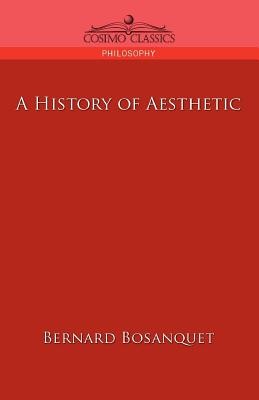
- We will send in 10–14 business days.
- Author: Bernard Bosanquet
- Publisher: Cosimo Classics
- Year: 2005
- Pages: 520
- ISBN-10: 1596053240
- ISBN-13: 9781596053243
- Format: 14 x 21.6 x 3 cm, minkšti viršeliai
- Language: English
- SAVE -10% with code: EXTRA
Reviews
Description
Among the ancients the fundamental theory of the beautiful was connected with the notions of rhythm, symmetry, harmony of parts; in short, with the general formula of unity in variety. Among the moderns we find that more emphasis is laid on the idea of significance, expressiveness, the utterance of all that life contains; in general, that is to say, on the conception of the characteristic. -from "Definition of Beauty" T.H. Green called him "the most gifted man of his generation." Certainly he was one of the most popular and most influential British idealists of the early 20th century, and an intellectual cousin of Ludwig Wittgenstein and Bertrand Russell. In this definitive work, first published in 1892, Bernard Bosanquet explores the realm of aesthetics-the philosophy of art-from a romantic, almost mystical perspective, discussing how the appreciation of art exposes the spirituality of humanity, and why it is a vital component to any metaphysical understanding of the universe. From the earliest Greek poetry and Latin comedy to very modern ideas about "ugly beauty" and the impact of science on art, Bosanquet will change the way you look at art. British scholar and philosopher BERNARD BOSANQUET (1848-1923) also wrote, among his many works, Logic, or the Morphology of Knowledge (1888), The Civilization of Christendom and Other Studies (1893), and Social and International Ideals: Being Studies in Patriotism (1917).
EXTRA 10 % discount with code: EXTRA
The promotion ends in 23d.11:20:09
The discount code is valid when purchasing from 10 €. Discounts do not stack.
- Author: Bernard Bosanquet
- Publisher: Cosimo Classics
- Year: 2005
- Pages: 520
- ISBN-10: 1596053240
- ISBN-13: 9781596053243
- Format: 14 x 21.6 x 3 cm, minkšti viršeliai
- Language: English English
Among the ancients the fundamental theory of the beautiful was connected with the notions of rhythm, symmetry, harmony of parts; in short, with the general formula of unity in variety. Among the moderns we find that more emphasis is laid on the idea of significance, expressiveness, the utterance of all that life contains; in general, that is to say, on the conception of the characteristic. -from "Definition of Beauty" T.H. Green called him "the most gifted man of his generation." Certainly he was one of the most popular and most influential British idealists of the early 20th century, and an intellectual cousin of Ludwig Wittgenstein and Bertrand Russell. In this definitive work, first published in 1892, Bernard Bosanquet explores the realm of aesthetics-the philosophy of art-from a romantic, almost mystical perspective, discussing how the appreciation of art exposes the spirituality of humanity, and why it is a vital component to any metaphysical understanding of the universe. From the earliest Greek poetry and Latin comedy to very modern ideas about "ugly beauty" and the impact of science on art, Bosanquet will change the way you look at art. British scholar and philosopher BERNARD BOSANQUET (1848-1923) also wrote, among his many works, Logic, or the Morphology of Knowledge (1888), The Civilization of Christendom and Other Studies (1893), and Social and International Ideals: Being Studies in Patriotism (1917).


Reviews